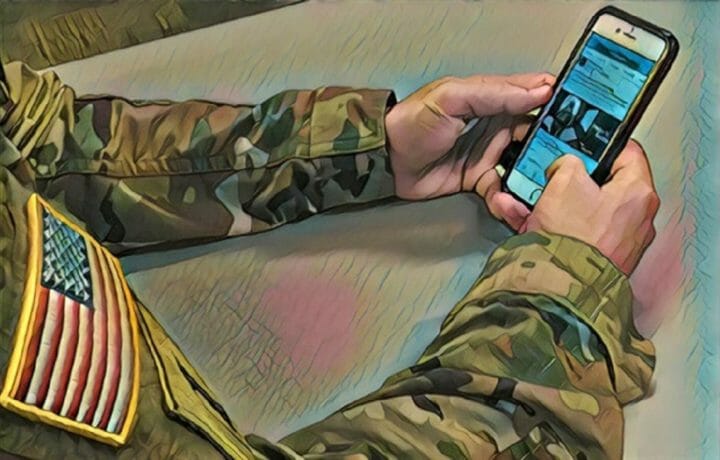Just a week ago, I had the opportunity to participate in a whirlwind panel discussion on social media at the annual Association of the United Army symposium in Washington, D.C. I’m still pondering what I saw and heard that day, both from my fellow panelists as well as the standing room only audience that was in attendance. The panel, sponsored by the leader development website, From the Green Notebook, brought together as eclectic a group as you’ll find on a stage, all experienced social media communicators and influencers.
The impact of social media on our personal and professional lives has long been a topic of interest for me. As someone who has maintained a strong presence for more than a decade – just don’t call me the ‘OG’ – I’ve seen and learned more than I could have ever imagined. Bringing that experience to the stage offered a rare opportunity to engage others outside the social media-sphere, while addressing the challenges and opportunities inherent to that space.
For many of those ten-plus years, I found it fascinating that so many people would turn to a semi-anonymous cartoonist on social media for advice and counsel. The reasons why were framed by a powerful discussion initiated by General Robert Abrams, the commander of U.S. Forces Korea. The social media-sphere is home to an entire generation of young leaders. They are digital natives in the truest sense. Like any other leaders in any other generation, they look to people with more experience for mentoring and development. Unfortunately, they don’t find them on social media. There are exceptions – I like to think I am one – but they are rare.
The Social Media Bus
In Abrams’s discussion, he compared social media to a bus, an apt metaphor. That younger generation is on the bus, and the older generations can choose to take a seat – where they can engage – or they can watch the bus leave without them. I think we can take that metaphor even further. There are empty seats on that bus, and if we don’t take them, someone else will. And we might not like who replaces us on the bus, or where they steer the younger generation.
For many of you, that bus is already moving, and you’re not on it. Not only are you not engaged with your junior leaders on social media, you’re upset because they’ve been swayed by others who likely don’t have their best interests at heart. Or, worse yet, you’re on social media, but only to lurk, to watch over the social media activities of others so you can criticize or censor them. In either case, the bus is leaving the station without you, and you have no one to blame but yourself.
Social media presents challenges, certainly. There are risks, personal and professional. Knowing what you can and should say, and how to convey a clear message, is essential. It can be frustrating at times, because social media has a tendency to bring out a person’s true personality, and that’s not always a good thing. From an outside perspective, it can seem like the La Brea tar pits, and your only options are head first or feet first. But the opportunities vastly outweigh the challenges. If you want to lead, then you need to be willing to engage in a digital world, and that means taking a seat on that bus.
As the panel came to a close, an audience member raised an incredibly insightful question: “How do you counsel someone on social media use?” Frankly, the same way we ever did: directly, professionally, and in private. You engage them in a two-way conversation, one that allows both of you to talk and to listen. The key to this? You need to be on the bus to have that conversation.




